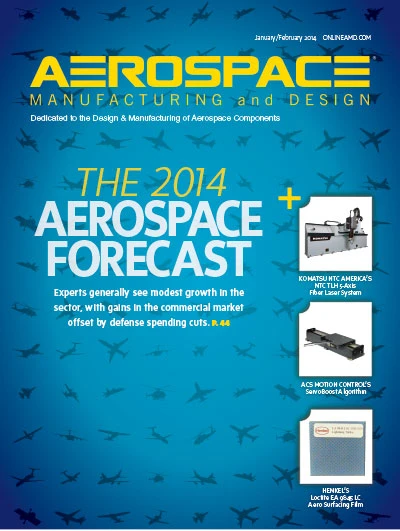 Eric Brothers Eric BrothersSenior Editor ebrothers@gie.net |
I was all set to write about the keen competition among 22 states to secure the assembly line for Boeing’s 777X intercontinental jetliner, about state governments offering huge tax incentives, and decades-long free land leases for a few thousand jobs. But as 2014 began, all of that became moot. The 8-year revised contract extension that Boeing offered to the International Association of Machinists & Aerospace Workers (IAM) union, District 751, in Washington state came to a vote by the rank-and-file on Jan. 3 and was approved by the slim margin of 51%. Within an hour of the Friday night voting deadline and the announcement of the results, Boeing officials issued a statement confirming the terms of the contract that extends the current agreement to 2024, “the 777X and its composite wing will be built in the Puget Sound area by Boeing employees represented by the IAM. This work includes fuselage build, final assembly, and major components fabrication such as interiors and wires.” All of the erstwhile efforts of the chambers of commerce and governors’ and mayors’ offices around the U.S. to secure the coveted 777X work had come to naught. The events surrounding the contract highlight the new realities of aerospace manufacturing at one of its traditional hubs, with potential lessons for manufacturing further along the supply chain and farther afield. One lesson is that airplane manufacturing truly is part of a global economy, even when that globe merely extends to other states in our nation hungry for high-wage aerospace jobs. Competition is fierce for those jobs and the related economic benefits they bring from decades of assured employment. The notion of keeping certain manufacturing in certain regions because of tradition or by virtue of existing infrastructure and skilled employees is little more than a nostalgic yearning – as it has been for decades in manufacturing centers like Detroit and Pittsburgh. Boeing clearly had the stronger hand in Puget Sound, with so many other municipalities vying for the 777X work. At one point, Boeing Commercial Airplanes President and CEO Ray Conner told local government leaders that a vote to reject the company’s final and “best offer” would ensure the jobs would go elsewhere. Such tactics were viewed by local union leaders as fear mongering and outright intimidation by the corporation. Maybe, but the hard reality was there were plenty of other states eagerly courting Boeing that had no compunction about stripping jobs away from Puget Sound. “There was an economic reality that these jobs could go elsewhere and I think that was probably the overwhelming view that led to this vote,” Washington Gov. Jay Inslee, a Democrat, told KING5-TV. The union members had a hard choice to make between pensions and jobs and chose the latter. The slender majority in the vote tally represented only 600 of the 23,900 votes cast by union members represented by IAM District 751, but they also represent cold realities. While longtime union members – and local leaders – bitterly opposed giving up years of hard-won benefits, younger members were more open to the company’s offer, even though it would replace fixed pensions with defined-contribution plans and a 401k. These workers didn’t see the value of a pension without a job. The majority realized good-paying aerospace jobs are now a highly mobile commodity, being subject to relocation at a corporation’s discretion. As always, your input is welcome and can be sent to ebrothers@gie.net. – Eric |

Explore the January February 2014 Issue
Check out more from this issue and find your next story to read.
Latest from Aerospace Manufacturing and Design
- Essential strategies to protect your data
- NASA selects instruments for Artemis lunar terrain vehicle
- Twin-cutter boring head
- Bell awarded funding for X-plane build phase of SPRINT program
- Shaft coupling clamps
- #46 Lunch + Learn Podcast with SMW Autoblok
- Gleason Corp. acquires the Intra Group of Companies
- Thread milling cutter reduces cutting pressure, vibration





